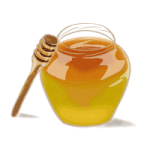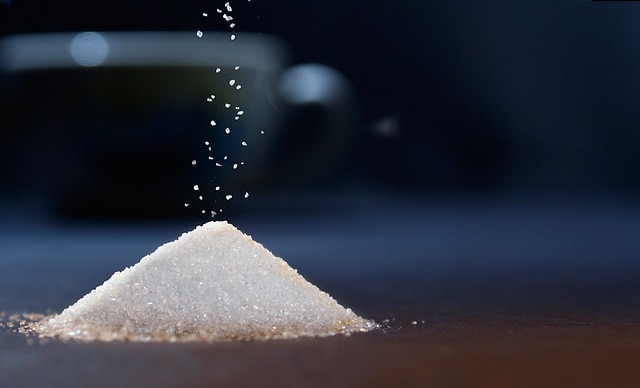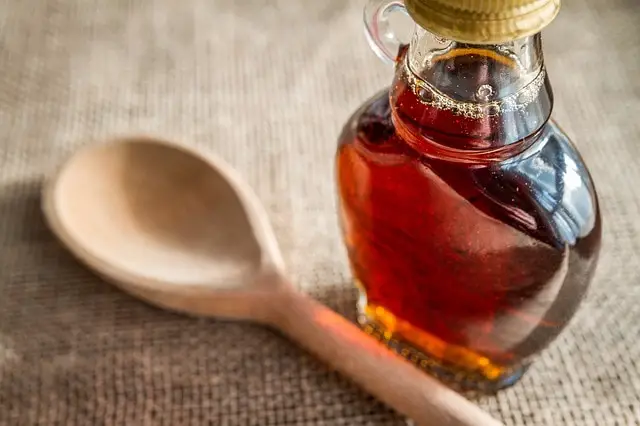
Most teas have a slightly bitter undertone. While this is a taste that some people enjoy, many will add some kind of sweetener to counteract it.
If you have only just started drinking tea or have decided to branch out, you may want to figure out how to sweeten your tea. Or rather, the best way to do so.
Well, you are certainly in for a treat as there are many different ways you can achieve this.
Contents
Here are all the ways you can have a sweeter tasting cup of tea:
One of the most common ways to sweeten your brew is with white or brown sugar. This, of course, is because these ingredient are affordable and readily available.
However, what you may not know is that there are some rules to follow when adding sugar to tea.
To begin with, you should only really use sugar to sweeten black teas. This addition is an excellent accompaniment to the bold and astringent flavor of this type of tea.
You will find that sugar works best with gunpowder black tea, English Breakfast, and Earl Grey.
It is best to avoid adding sugar to green, white, oolong, and pu’erh tea.

Often known as Chinese Rock Sugar, this sweetener can be quite similar to traditional sugar. It is essentially crystallized lumps of refined sugar.
However, unlike sugar, it doesn’t have any caramel undertones and is generally accepted as being less sweet.
Due to this, it doesn’t overwhelm the natural flavors of the tea. This makes it a great addition for those that want to enjoy the subtle undertones of their tea.
If you have ever tried to make sweet or iced tea, then you can appreciate that it isn’t easy to dissolve sugar in cold or room temperature water.
This is why most people will use simple syrup instead. Although it is made from sugar, it’s in a liquid form. As such, it is far easier to use in iced tea.
It is quite easy to make a simple syrup. All you need is one part sugar to one part water.
Pour the sugar and the water in a pan and bring it to a boil, stirring until the sugar has dissolved.
Once the solution has cooled, it can be added to the tea.
Related Article
How to Make Tea Taste Good: Tips, Tricks, and More
Since you are here, you probably want to find alternatives to sugar. If so, these are the top ingredients to consider:
Related Article
Milk in Tea: The Dos, Don’ts, and Everything in Between
If you want a healthier substitute for sugar but still want to maintain the sweetness, honey is a good option.
It is especially great for sweetening green tea, making it far more palatable.
Naturally, not all honey is alike in taste and nutrient value. Thus, look for unprocessed, high-quality honey.
Also, make sure that you add the honey in rather sparingly – it is quite a bit sweeter than sugar.

Would you like to sweeten your tea and add some complex tones to your brew as well? If so, maple syrup is the way to go.
In addition to being sweet, this syrup also has a notable maple and nutty taste. So, it can make for a rather delightful cup of tea.
You should be aware that you can’t use the same kind of syrup that you slather on your pancakes for your tea.
Rather, you are going to need something that is minimally processed and as pure as possible.
Freshness is certainly a bonus as well!

A sugar alternative that’s becoming more popular is coconut sugar. It is made from coconut palm sap.
You can add coconut sugar to your tea. It is similar in taste and structure to regular sugar.
Nonetheless, if you’re turning to coconut sugar in hopes that it is healthier, you may want to look elsewhere.
While coconut sugar contains trace amounts of nutrients, you will have to consume a lot of it to enjoy these benefits.
It isn’t advisable to do so as coconut sugar is quite high in both calories as well as fructose.
Also, while it is presumed that coconut sugar has a lower glycemic index than regular sugar, this may not be true in all cases. This is because the GI can vary quite a bit from one brand to another.
Most people rely on artificial sweeteners as they are low in calories. And, since they are available in a powder form, they dissolve in tea rather easily.
Some people would prefer to stay away from such sweeteners as they don’t contain too many natural ingredients.
However, they are generally considered to be safe for consumption.
The only real downside with these sweeteners is the flavor – it doesn’t taste like sugar. As such, it may not appeal to you. You may need to experiment with several brands until you find one that you like.
Stevia is often the best of both worlds – it is natural but low in calories. So, you can add it to your tea, and feel completely guilt-free.
That being said, you do have to appreciate that this sweetener can have a rather unique flavor. There are hints of licorice and it can even border on slightly bitter.
It is an acquired flavor, one that many people can’t appreciate.
As you can see, there are several ways to sweeten your tea. Thus, if you prefer a sweeter cup, you now know just what your options are.
